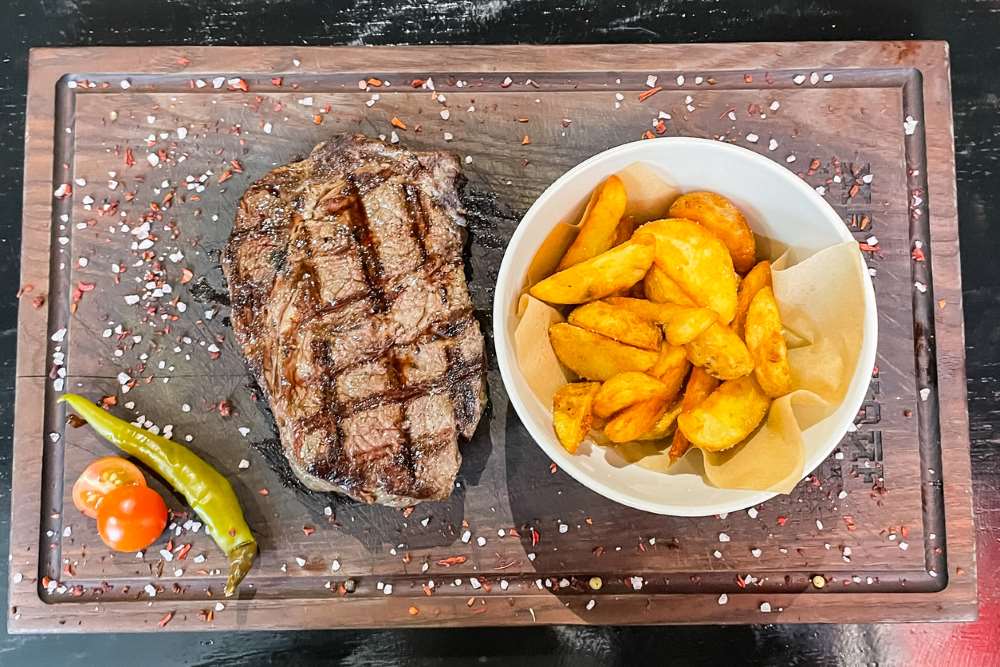
Grilled food is delicious. The art of grilling started in the Caribbean with the Arawak tribe in the 17th century. Today, it's become a popular way to cook, with about 70% of people owning a grill.
Grilling is fun and a great way to unite people for various events. To keep things safe during a barbecue with family and friends, always read and understand the manufacturer's instructions for the grill before using it.
Here are the best practices for grilling delicious foods:
Grill from Outside
Grilling should be done outside. It might be tempting to grill indoors, especially if you have a big balcony off your kitchen. But this can be risky. Using a charcoal or gas grill indoors is a fire hazard since nearby items could easily catch fire. You also risk inhaling carbon monoxide, which builds up in enclosed spaces like houses. Grilling inside might improve quality and timing, but using an electric grill is generally safer for indoor cooking if you follow the other safety guidelines.
Use Charcoal Grills
Charcoal grills are the most popular for several reasons. Before you learn why, this should be on your shopping list. A charcoal grill gives meat a sweet flavour thanks to its infrared flame that burns with love.
The chef can also maintain maximum control of the procedure since they can see and feel the flame's intensity. Another advantage is that you can effortlessly transport the grill to the cooking area. Charcoal grills are also affordable to purchase and maintain, giving users value for their money.
Place the Grill on a Stable Ground
One of the priorities to inspect before grilling is ensuring the grill is level and stable. If it is not on a flat surface, the grill is highly likely to tilt or flick and cause an accident. This could include spilling food or breaking or burning the chef.
Any defect that could undermine the feature's effectiveness should be addressed promptly and adequately for maximum safety. General maintenance is also essential to keep equipment in good condition.
Situate the Grill Far from the House
Locating the grill too close to the house is like grilling inside. Instead, grilling a few meters from the house or any other structure like an animal shelter is safer for maximum security.
The reason is that carbon monoxide could travel quickly without being noticed and reach those in the shelter. This reduces the chances of a property fire in an accident. Backyards are the best spaces for grilling. You'll still need to store a few things.
Remember the PPEs
Personal Protective Equipment (PPE) should be necessary for your safety and for those around you. You must tag it at every session to prevent accidents. A few include aprons, gloves (neoprene), face shields, oven mitts, grilling utensils, and resistance shoes.
It can be tempting to quickly flip the food using your hands 'to save time,' but this is strongly inadvisable. Management must ensure that all operators have enough PPE for commercial grilling. Additionally, supplies should be cleaned regularly.
Keep a Fire Extinguisher Close
You can never tell when a fire will strike while grilling. Accidents are naturally unforeseen, so you should stay ahead with preventive measures. In this case, fire extinguishers come in handy to ensure you quickly put out a fire when it occurs. To ensure a safe environment, the fire extinguisher should be fully functional and of a suitable model.
Stay on Watch
Another practice for grilling is ensuring uninterrupted watch over the food as it grills. It's highly discouraged to leave the content alone due to the potential consequences of an accident. If neglected, the equipment's intense heat can become a safety hazard.
No matter how quickly you intend to handle an errand, it is essential to leave someone else (an adult) on stand-by until you resume. One in three grilling accidents happened because no one was watching.
Clean the Work Area Regularly
Grilling supplies require high cleanliness levels to maintain food safety and the handlers or consumers. First, you must wipe the cooking grates before every use to remove any dust that might have crept into the storage area.
This is followed by a thorough session to eliminate the grease, oil, and food particles that often build up across the parts as you grill. Don't forget the work area, too, because it is prone to spills that can easily attract rodents and germs if not well cleaned.



























